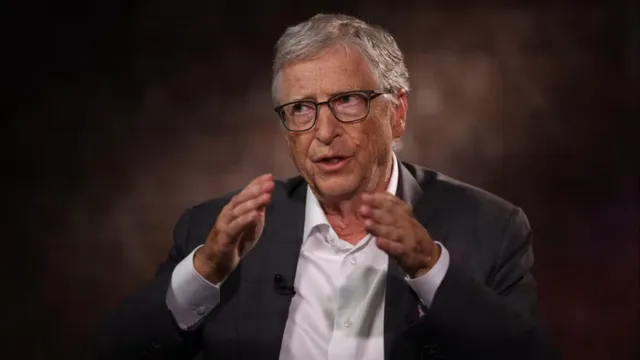
Bill Gates accuses Elon Musk of causing child deaths through aid cuts
2025-05-09 16:53- Bill Gates has increased his charitable commitment to $200 billion over the next 20 years in response to cuts in U.S. foreign aid.
- Gates criticized Elon Musk for his significant role in these cuts, stating they threaten the lives of the world's poorest children.
- The abrupt cessation of aid is likely to exacerbate health crises and lead to increased mortality rates among vulnerable populations.
Express your sentiment!
Insights
In response to recent cuts in U.S. foreign aid, Bill Gates criticized Elon Musk for his decisions that have led to severe funding reductions for life-saving programs. These cuts were enacted through Musk’s so-called Department of Government Efficiency, effectively shutting down the U.S. Agency for International Development (USAID). As a result, millions of children face increased vulnerability to malnutrition and diseases such as HIV and malaria, potentially leading to disastrous outcomes, including thousands of preventable deaths. Gates explicitly stated the consequences of these funding cuts in an interview with a leading media outlet. Additionally, he contended that these issues highlight the disparity in wealth and responsibility among the world's richest individuals, suggesting that philanthropic efforts cannot compensate for the extensive withdrawal of government aid. Gates announced plans to significantly increase his charitable contributions over the coming years, emphasizing his commitment to global health and welfare, and underscoring concerns of inadequate support for disadvantaged populations globally amid these cuts. In contrast, Musk’s philanthropic involvement has been limited compared to his wealth, raising questions about his priorities amidst his business pursuits. Gates, meanwhile, is taking serious steps to allocate his fortune towards combating health crises resulting from decreased aid funding, hoping to reverse some of the damage inflicted by these policy changes. As this conflict between the two billionaires unfolds, it reflects broader debates surrounding wealth distribution, philanthropy, and the moral obligations of the ultra-wealthy towards addressing global challenges as they arise.
Contexts
The impact of USAID cuts on global health has emerged as a critical issue affecting various populations around the world. USAID, the United States Agency for International Development, historically plays a significant role in international health efforts by financing projects aimed at reducing disease, improving health systems, and boosting overall public health resilience. With recent budget reductions, the ramifications on programs that target infectious diseases, maternal and child health, nutrition, and other health initiatives are profound. The decrease in funds not only threatens the continuation of established health programs but also poses risks of reversing progress made in improving health outcomes globally, particularly in low- and middle-income countries where resources are already constrained and vulnerable populations rely heavily on these interventions. The cuts to USAID's budget will likely lead to decreased access to critical healthcare services, particularly in remote and underserved communities. Essential health interventions, such as vaccinations, HIV/AIDS treatment, and maternal health services, could see reduced availability and effectiveness due to funding shortages. This could result in higher rates of morbidity and mortality among populations already facing significant health burdens. Furthermore, public health initiatives that rely on USAID partnerships, such as community health worker programs aimed at delivering essential services, may have to scale back operations or cease entirely, forcing communities to resolve health issues without adequate support. The consequences of these funding cuts extend beyond immediate health impacts, affecting economic stability and workforce productivity. Poor health outcomes lead to a reduction in workforce participation and economic contributions, ultimately hindering sustainable development goals aimed at poverty alleviation and economic growth. Countries dependent on USAID funding may face challenges in meeting their health-related targets, contributing to long-term setbacks in managing diseases and improving health systems. This ripple effect can destabilize regions and amplify the vulnerability of populations to future health crises, such as pandemics, thereby increasing the overall burden on global health systems. In conclusion, the cuts to USAID funding represent a significant threat to global health, particularly for vulnerable populations reliant on foreign aid for essential health services. The long-term impacts of reduced funding will likely hinder progress in achieving health equity and sustainability. To mitigate these negative effects, it is crucial to advocate for continued support and funding restoration for health programs, emphasizing the interconnectedness of global health and development. Enhanced international collaboration and innovative funding solutions will be necessary to address the challenges posed by USAID cuts and ensure the resilience of global health initiatives for current and future generations.